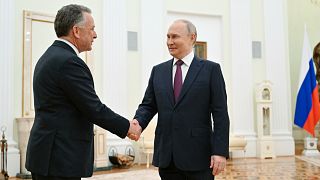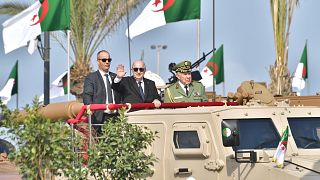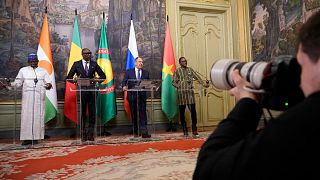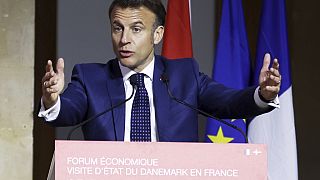Algeria
After acknowledging the role of France in the assassination of Algerian freedom fighter, lawyer Ali Boumendjel, French President Emmanuel Macron made a new gesture to facilitate access to classified archives including the Algerian War.
The Objective is to break taboos, solidify relations between France and Algeria, but also to shed light on certain grey areas.
The national archives and the services of the Ministries of Foreign Affairs and the Armed Forces will be able to declassify archives that are over 50 years old more quickly, which will reduce the waiting time for researchers who want to access them.
Euronews' Guillaume Petit speaks to Céline Guyon, President of the Association of French Archivists. He asked her about how much faster will it be and what can be expected to access thousands of documents, thousands of boxes?
Céline Guyon: ''It is certain that we can congratulate ourselves that the citizen's mobilization has been heard by President Macron, but in the end nothing will change, since it is a simplification measure that is qualified as cardboard demarcation. That is to say that rather than demarcating piece by piece, the president has authorized demarcation cardboard after cardboard. But it is important to know that the archives keep several tens of thousands of boxes containing secret-defense documents.''
Guillaume Petit: French President Macron has taken a big step. This is what the Algerian daily Liberté wrote, quote: ''The French president seems to want to put his foot down in the voice of an appeased relationship with Algeria, notes l'Expression, close to the power. But this openness, the newspaper adds, does not settle the contentions of history, because the archives do not say everything.
Samir Larabi is a journalist and member of the Socialist Workers' Party. He sees the announcement by Emmanuel Macron as a step ahead.
Samir Larabi: ''Yes, of course, it is a step forward that we declassify and that we facilitate access to researchers and even to a large public. But I also think that we have to be careful with the use of these archives, because there may also be some manipulation of certain documents. When these archive documents were made by what is called the ""Deuxième Bureau", the French military intelligence agency, which was also in charge of colonial propaganda, it could be possible that there might be documents that are falsified or misinterpreted or badly studied.''
Guillaume Petit: Some of the archives that will not be declassified are those on the nuclear tests carried out in the Algerian Sahara in the 1960s. And yet this is what Algiers is asking for.
Samir Larabi: ''Of course, and it must be declassified. Because many Algerians, especially in the south of the country, have suffered and continue to suffer from these nuclear tests. There are many diseases, cancer, deformations, there are still babies or people who are deformed.
I think that we must open everything and leave nothing behind. Regarding the question of whether the French colonial empires should apologize, I think they should. Not only ask for an apology, but make sure not to reproduce the yesterday's practices, in its colonial or neo-colonial form.''










00:53
Algeria expels over 1,800 migrants to Niger in mass deportation
01:05
Israeli tourists barred from Maldives as act of support for Palestinians
01:04
Algeria suspends flights to Mali over airspace violations
Go to video
France, Egypt, and Jordan hold talks on the situation in Gaza
Go to video
France: Le Pen declares 'nuclear bomb' dropped after office ban sentencing
00:40
Tebboune and Macron commit to enhancing bilateral cooperation between Algeria and France